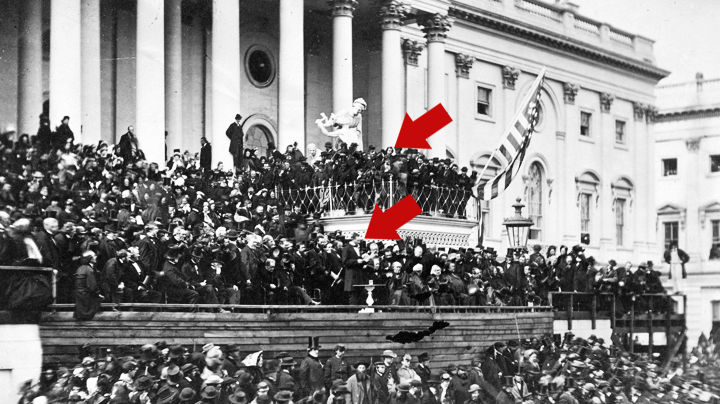Background
The population of the United States is 10 times what it was in the American Civil War. The number of people who died in that war was 600,000. In today’s terms, it would be like six-seven million people lost their lives. Everyone in the country would know someone who died in the war. It seems that Lincoln in his Second Inaugural Address was trying to give some meaning to that enormous loss of life.
Lincoln gave his address on March 4, 1865. It was clear and had been clear for some time that the North would win the war. A month later, the Confederate General Robert E. Lee would surrender at Appomattox Courthouse. The 13th Amendment, which freed the slaves, had passed both houses of Congress and was on its way to confirmation in the states (December 1865). Lincoln had won a resounding re-election to the presidency in November of 1864 and was at the highpoint of his popularity. His audience expected a victory speech. Instead, they received what one journalist at the time called “Lincoln’s Sermon on the Mount.” referring to Jesus’s last message to his disciples before he died.
Historians have long debated whether Lincoln was a believer or whether he was not when young but changed his mind later. But there is no question that the Bible is the source for this speech. Historians have found that there are many allusions to Biblical phrases. Evidently, Lincoln like most Americans was shocked at the high toll of the war — the 600,000 lives lost. No one predicted this at the beginning, and clearly, the war took on a life of its own. In this speech, he wanted to explain the loss by answering several higher moral questions: For what greater purpose did so many have to die? Did God have a side in this war? Who was responsible for causing the war? Who was responsible for making things whole again after the war?
Though the speech is regarded by many as his second finest speech (after the Gettysburg Address), Lincoln did not think the speech would be very popular. He wrote in a letter: “Men are not flattered by being shown that there has been a difference of purpose between the Almighty and them.”
But the sober tone of the Second Inaugural and its suggestion that the toll of war was the sacrifice for the sin of slavery entered the country’s consciousness as Lincoln himself became one of the last sacrifices of the war.
Lincoln a little over a month later on April 15, 1865 — John Wilkes Booth.
